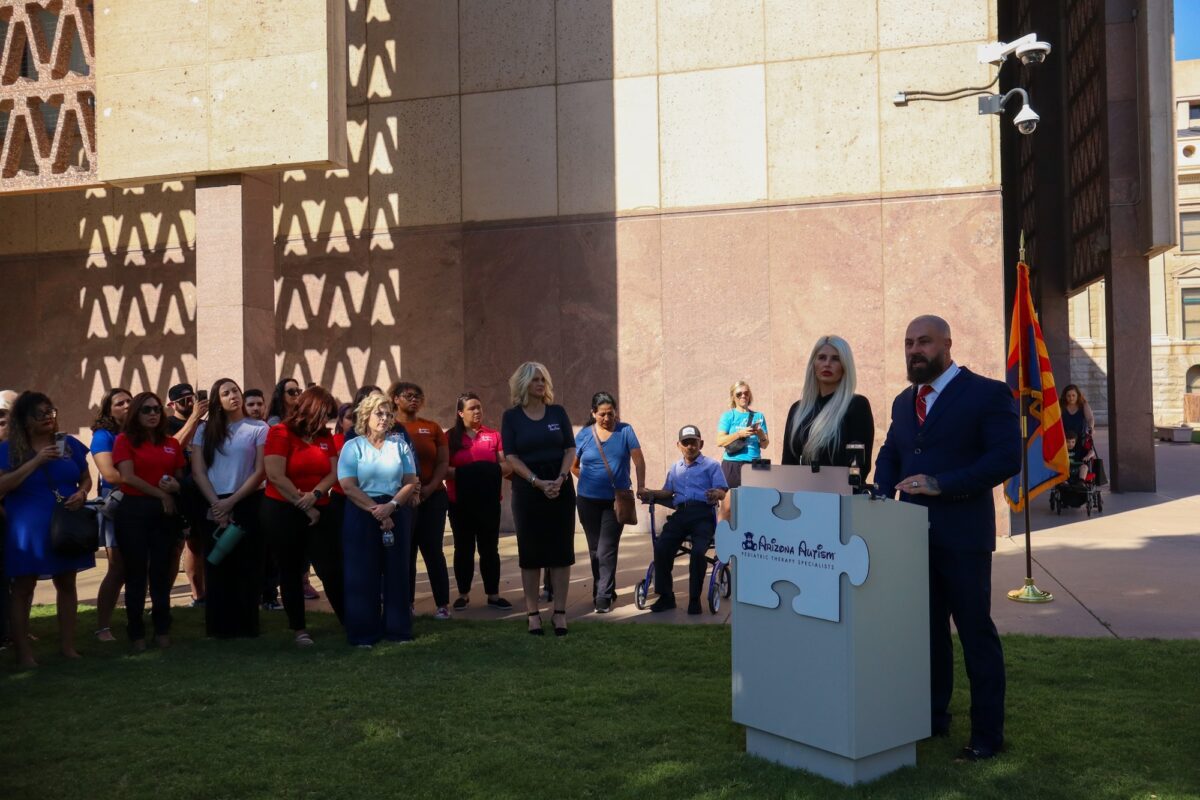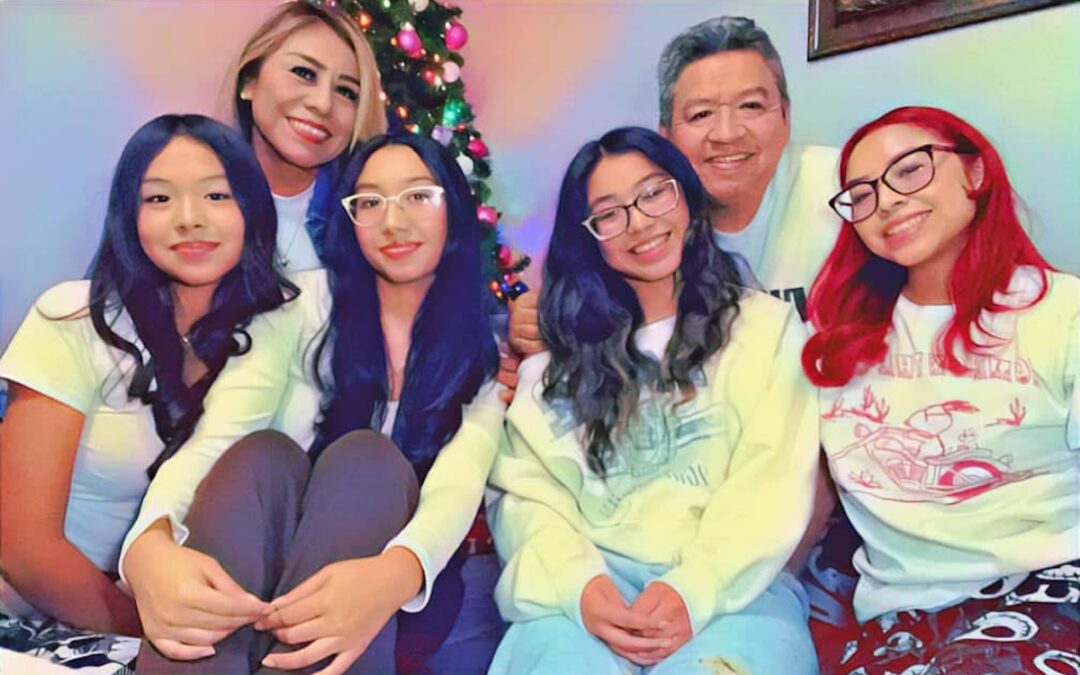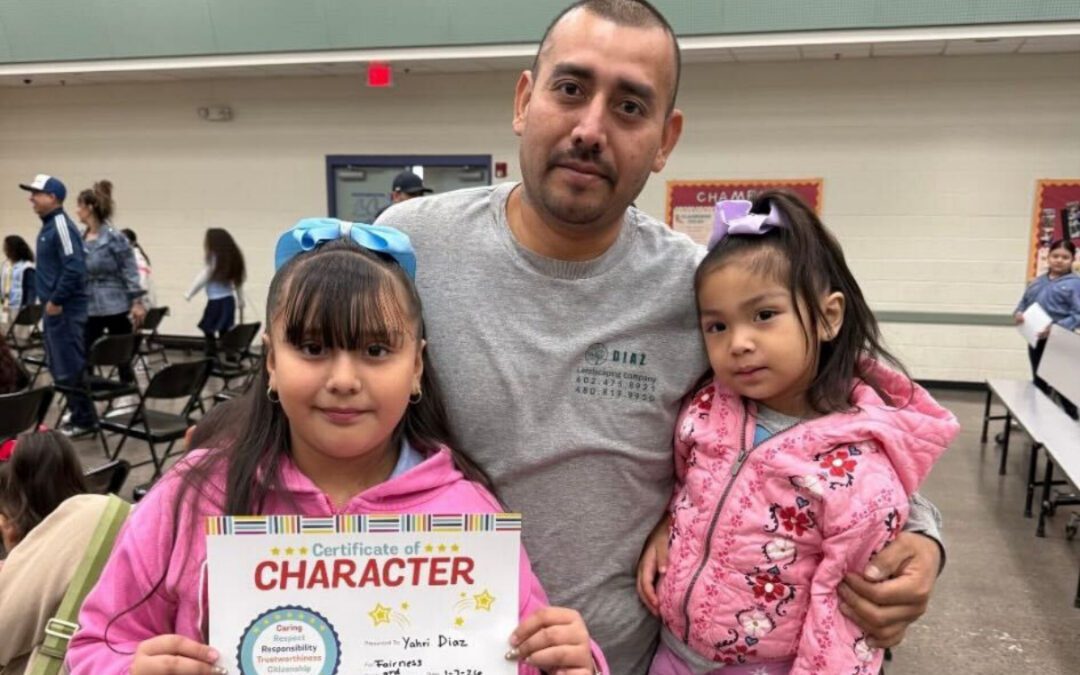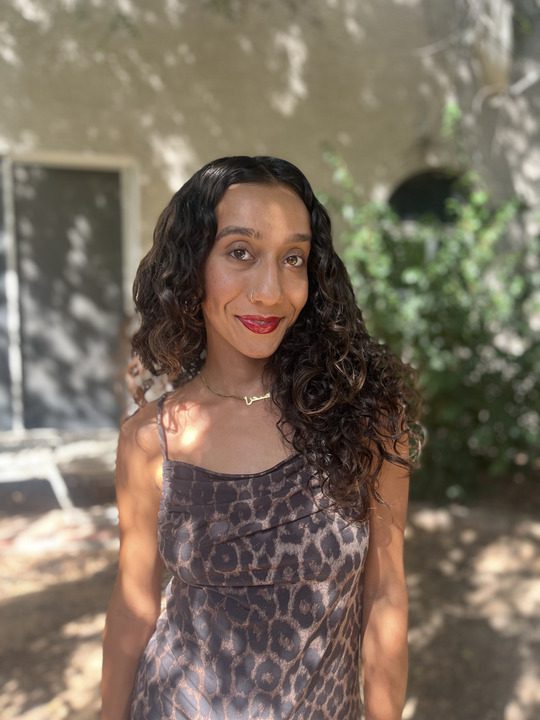
Advocates gather at the Arizona Capitol in Phoenix on Monday, urging Gov. Katie Hobbs to temporarily pause proposed cuts to funding for the Division of Developmental Disabilities (DDD). Sahara Sajjadi/The Copper Courier
The rally, held by Arizona Autism, was attended by dozens of advocates who worry about what these cuts will mean for them.
Advocates for disability services rallied at the state Capitol on Monday to urge Gov. Katie Hobbs to find a temporary solution to pause or delay cuts to the Division of Developmental Disabilities (DDD), which went into effect on Wednesday.
The cuts will impact attendant care services, which provide care workers who assist children with disabilities, and habilitation services, which offer training for children to develop independent living skills, such as physical, occupational, and speech therapies, mobility support, behavior intervention, and more. Both services help families afford at-home care.
It’s unclear if Hobbs has any ability to pause the cuts, and advocates also said they planned to pressure legislators, as well.
At a press conference last month, Hobbs said the cuts will protect “this program into the future for the families that need it. We couldn’t move forward without guardrails, and that’s what we are doing.”
The cuts come six months after advocates rallied at the Capitol to secure funding for the DDD to prevent a budget shortfall and ensure continuance of care for people who depend on these programs.
House Bill 2945, which covers the budget shortfall, was signed into law by Hobbs in April after receiving bipartisan support. However, part of the legislation introduced new limits to DDD services, including putting a 40-hour weekly cap on the Parents as Paid Caregivers Program program, with the cap going down to 20 hours per week starting on Oct. 1.
The Arizona Healthcare Cost Containment System (AHCCCS), Arizona’s Medicaid program, and DDD were also tasked with creating new rules regarding the funding.
In a presentation shared in early Sept. by AHCCCS, the department introduced new age-based limits. Under the new rules, the state will no longer assess the needs of children with disabilities for attendant care if they are under the age of 10, and there are now stricter guidelines on how much habilitation services children can receive based on their age.
Parents said they felt blindsided by the changes, but AHCCCS said it consulted with board-certified physicians to determine the ages at which children should receive different services.
“These policy updates are designed to ensure services are delivered in a clinically appropriate, equitable, and cost-effective manner, while complying with federal requirements and Arizona law,” a spokesperson for AHCCCS said.
The changes mean many Arizona families will now have to cover the costs of these services and will no longer receive help from the state.
Parents like Holly Brittain, whose 7-year-old daughter, Quinn, has autism, expressed frustration over the changes, which were announced less than a month before they were set to take effect.
“We just didn’t know they were going to happen so quickly, and give parents 25 days to scramble to find what they can do,” she said. “At the end of the day, these families, including my own, [are] going to drown because of this.”
For the past four years, Brittain’s family has benefited from DDD services that have allowed her to get at-home caregivers and support to help Quinn to develop life skills that otherwise would have been difficult to learn.
Thanks to these services, her daughter has become more independent, learning about car safety and how to interact with doctors or police. Additionally, having an at-home caregiver ensures her daughter’s safety. Otherwise, Quinn might engage in dangerous activities, such as climbing on high counters or playing with knives.
Brittain worries the family won’t be able to afford a caregiver without this funding, and that her daughter’s progress will come to a halt.
“It’s going to be drastic for us,” she said. “My daughter will regress. She will lose the independence and the confidence she’s gained—what these services helped us build with her. She will lose all of that.”
A spokesperson for AHCCCS said the organization collected more than 600 public comments between May and July, notified families in advance about the changes, and held additional forums on Sept. 24 and 25 to address questions.
Ryker Martin, CEO of Arizona Autism, said the funding cuts would have a dramatic impact on his organization, which helps families find at-home caregivers. He also criticized the new age limits, arguing that each child is different and their needs vary.
“This is autism, and there’s no way that it can be accounted for by a random rubric,” Martin said. “When you cut back care, kids regress and go backward. We don’t measure our achievements in this industry by miles. We measure them by inches.”
Martin, whose son has autism, said that without a temporary pause, the organization may have no choice but to consider layoffs that would severely impact operations.
He urged the state to find a temporary solution to delay the cuts, which took effect Oct. 1.
“I’m just asking for better planning. I’m asking for us to have a seat at the table to deliberate this budget, and I’m asking for a pause,” he said. “I know it’s a big ask, but you can’t determine care based on a child’s age. That is not appropriate care, it’s not sufficient care, and it’s not going to help.”

A Walmart backpack may be the biggest clue in Nancy Guthrie’s disappearance
Investigators working on the disappearance of “Today” show host Savannah Guthrie’s mother are consulting with Walmart management to develop leads...

Her mom was detained in the Zipps raids. Now, she’s speaking out
Patricia Gonzalez was one of more than 30 people detained after immigration authorities conducted raids at Zipps Sports Grill locations across the...

Arizona sheriff says missing mother of Savannah Guthrie may be victim of a crime
An Arizona sheriff said Monday that “we do in fact have a crime scene” as authorities search for the 84-year-old mother of “Today” show host...

His family called Phoenix Police for help. An officer killed his dad, instead.
Christian Diaz subdued a home intruder on Jan. 26 only to be shot and killed by Phoenix Police once officers arrived at the scene. Now, his family...





